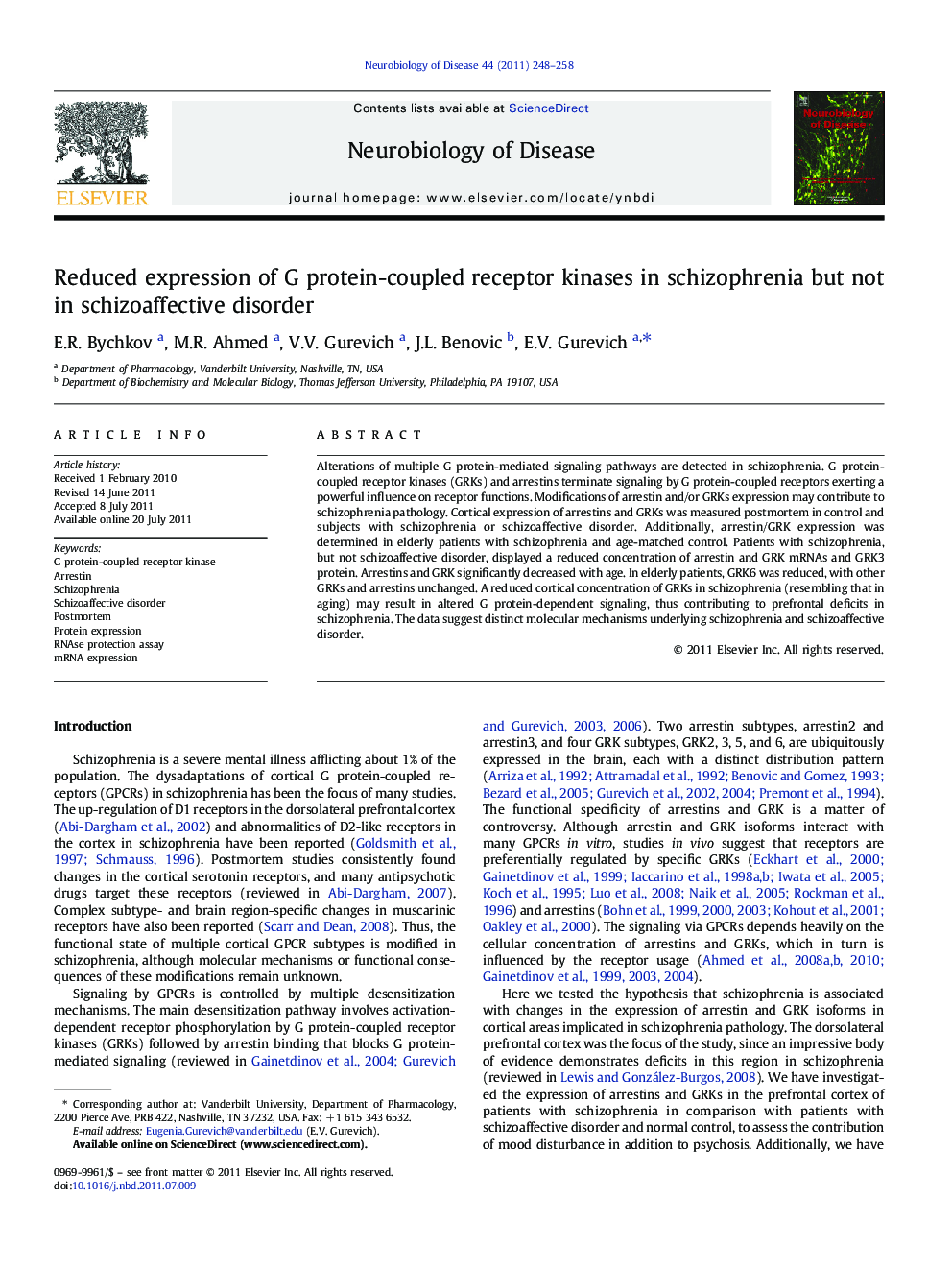| Article ID | Journal | Published Year | Pages | File Type |
|---|---|---|---|---|
| 3069545 | Neurobiology of Disease | 2011 | 11 Pages |
Alterations of multiple G protein-mediated signaling pathways are detected in schizophrenia. G protein-coupled receptor kinases (GRKs) and arrestins terminate signaling by G protein-coupled receptors exerting a powerful influence on receptor functions. Modifications of arrestin and/or GRKs expression may contribute to schizophrenia pathology. Cortical expression of arrestins and GRKs was measured postmortem in control and subjects with schizophrenia or schizoaffective disorder. Additionally, arrestin/GRK expression was determined in elderly patients with schizophrenia and age-matched control. Patients with schizophrenia, but not schizoaffective disorder, displayed a reduced concentration of arrestin and GRK mRNAs and GRK3 protein. Arrestins and GRK significantly decreased with age. In elderly patients, GRK6 was reduced, with other GRKs and arrestins unchanged. A reduced cortical concentration of GRKs in schizophrenia (resembling that in aging) may result in altered G protein-dependent signaling, thus contributing to prefrontal deficits in schizophrenia. The data suggest distinct molecular mechanisms underlying schizophrenia and schizoaffective disorder.
► The expression of arrestins and GRKs was examined at postmortem. ► Expression of GRKs proteins was decreased in schizophrenia. ► In some cases, arrestin and GRK mRNA was also decreased. ► We found no reduction in GRK expression in schizo-affective disorder. ► Expression of arrestin and GRKs decreased with age in control group.
